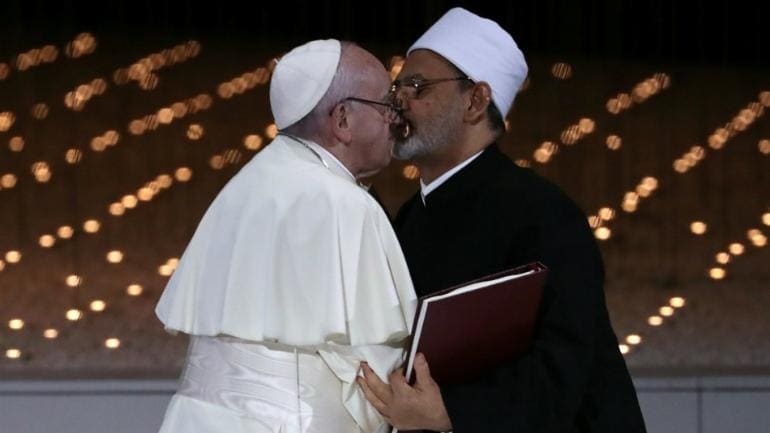Pope Francis has finally officially voiced his support for same-sex or gay marriage for the first time as pontiff during an interview for the documentary film “Francesco,” which premiered at the Rome Film Festival on Wednesday.
Francis has previously endorsed civil unions for gay couples as an alternative to same-sex marriages while serving as archbishop of Buenos Aires, but he never publicly voiced his support on the issue as pope until the interview.
“Homosexual people have the right to be in a family,” Francis said in the film. “They are children of God. What we have to have is a civil union law; that way they are legally covered.”
The remarks are a shift from the stance of the Vatican and the pope’s predecessors.

In 2003, the Vatican’s Congregation for the Doctrine of the Faith (CDF) taught that “respect for homosexual persons cannot lead in any way to approval of homosexual behavior or to legal recognition of homosexual unions,” according to the Catholic News Agency.
This attitude came under the leadership of Cardinal Joseph Ratzinger, who directly preceded Francis as Pope Benedict XVI, and at the direction of Pope John Paul II, according to the outlet.
The CDF at this time also said that legal recognition of homosexual unions, or treating them like marriages, would be supporting deviant behavior and “obscure basic values which belong to the common inheritance of humanity,” the outlet said.
The Jesuit priest who has been at the forefront in seeking to build bridges with gays in the church, the Rev. James Martin, praised the pope’s comments as “a major step forward in the church’s support for LGBT people.”
“The Pope’s speaking positively about civil unions also sends a strong message to places where the church has opposed such laws,” Martin said in a statement.
The film, directed by Evgeny Afineevsky, covers issues Francis cares about most, including the environment, poverty, migration, racial and income inequality, and the people most affected by discrimination.
It also features interviews with Vatican officials, the refugees Francis met with on some of his foreign trips, prisoners he blessed, and some of the gays to whom he has ministered.
Afineevsky had remarkable access to cardinals, the Vatican television archives and the pope himself. He said he negotiated his way in through persistence, and deliveries of Argentine mate tea and Alfajores cookies that he got to the pope via some well-connected Argentines in Rome.
“Listen, when you are in the Vatican, the only way to achieve something is to break the rule and then to say, ‘I’m sorry,’” Afineevsky said in an interview ahead of the premiere.
The film “tells the story of the pope by reversing the cameras,” said Vatican communications director Paolo Ruffini, who gave Afineevsky the names of those who had been impacted by the pope.
“He would be able to tell story of the pope through the eyes of all and not just his own.”
Source: Fox News